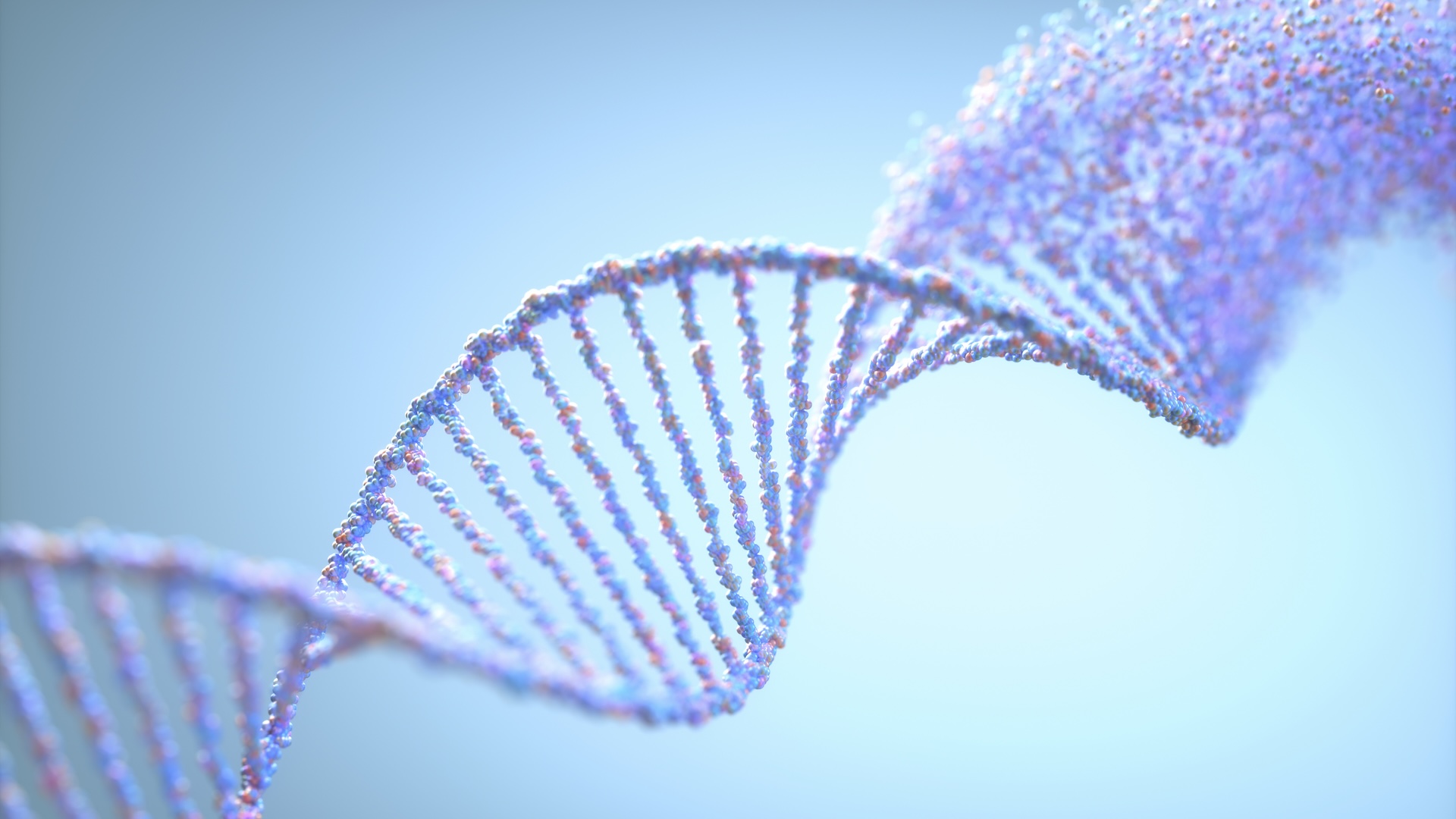
Scientists may be one step closer to understanding why polycystic ovary syndrome (PCOS) tends to run in families.
The new research, presented July 1 at the 41st Annual Meeting of the European Society of Human Reproduction and Embryology in Paris, suggests that "disruptions" in the way genes are turned on and off may increase the likelihood of developing PCOS. These "epigenetic" changes alter gene activity without changing DNA's underlying code, but they may also be passed down through families.
In theory, this research hints at a potential avenue for preventing PCOS.
If a person was undergoing in vitro fertilization (IVF), for example, "these damaging [epigenetic] markers may be identified in embryos and changed before being implanted in a pregnant person, preventing PCOS from being passed onto future offspring," Dr. Sherry Ross, a board certified OB/GYN at Providence Saint John's Health Center in Santa Monica, California, told Live Science in an email.
However, "further research needs to be done in human embryos to understand if this is a safe and viable intervention," she added.
Understanding PCOS inheritance
PCOS is a hormonal condition that affects 6% to 13% of reproductive-age women, according to the World Health Organization (WHO). Many cases — up to 70% — go undiagnosed worldwide. Common symptoms include ovarian cysts, weight gain, balding or thinning hair on the head, excess hair on the face or body, acne, infertility, and irregular or heavy periods.
Related: Malaria drug may treat root cause of PCOS, early study hints
Alongside these often debilitating symptoms, people with PCOS are also more likely to develop a variety of other conditions, including high blood pressure, type 2 diabetes and endometrial cancer, the WHO notes.
It's known that PCOS has a strong genetic component, said Dr. Sydney Chang, founding partner and medical director of CCRM Fertility of Austin.
In the Dutch Twin-Family Study, for example, researchers compared identical twins (who share nearly 100% of their DNA) with fraternal twins (who share 50% of their DNA), to see how likely it was for both twins in a pair to have PCOS. They found this concordance was twice as high among identical twins than fraternal twins, "suggesting that a large portion of the risk of developing PCOS is due to inherited genes," Chang told Live Science in an email.
It's estimated that 20% to 40% of people with PCOS have a mother or sister with the condition. But the exact pattern of inheritance is unclear, Chang noted. On that front, the new research may shed some light.
The study, led by Dr. Qianshu Zhu, an assistant professor of reproductive biology at the Institute of Reproductive Medicine at Chongqing Medical University in China, included about 230 women undergoing IVF, 133 of whom had PCOS and 95 of whom didn't. The researchers looked at unfertilized egg cells and pre-implantation embryos from these participations, looking for chemical tags, known as epigenetic markers, on the cells' DNA. These markers affect the activity of the genes they're attached to.
Compared to the eggs and embryos of people without PCOS, those from participants with the condition showed "widespread disruptions" in many key genes, according to a statement. Affected genes were involved in metabolic processes and activation of the early embryo's DNA. Sections of the genome called retrotransposons, which must be tightly regulated to keep DNA stable, were also affected.
The team also noted irregular patterns in well-known epigenetic markers that help control genes, including one called H3K27me3. In the statement, Zhu noted that "about half of the abnormal H3K27me3 signatures we saw in Day 3 embryos were already present in the oocyte [egg cells]. This tells us that an epigenetic signal is being passed from mother to embryo before implantation even begins."
Understanding these mechanisms could enable new preventative interventions for PCOS. The authors suggested that embryos created through IVF could potentially be treated to tweak their epigenetics and thus lower the risk of PCOS being inherited. The findings could also be useful in aiding embryo selection processes in IVF, they added.
Zhu emphasized, however, that the research is based on only lab-made embryos and cannot demonstrate how these epigenetic markers affect children. His team is now pursuing mouse studies to better understand the potential effects in offspring.
"What is exciting about this new research is it supports an actual genetic association between PCOS in families," Ross said, "and shines light for early diagnosis and interventions to prevent PCOS from being transmitted through families."
This article is for informational purposes only and is not meant to offer medical advice.


.jpg?w=600)




